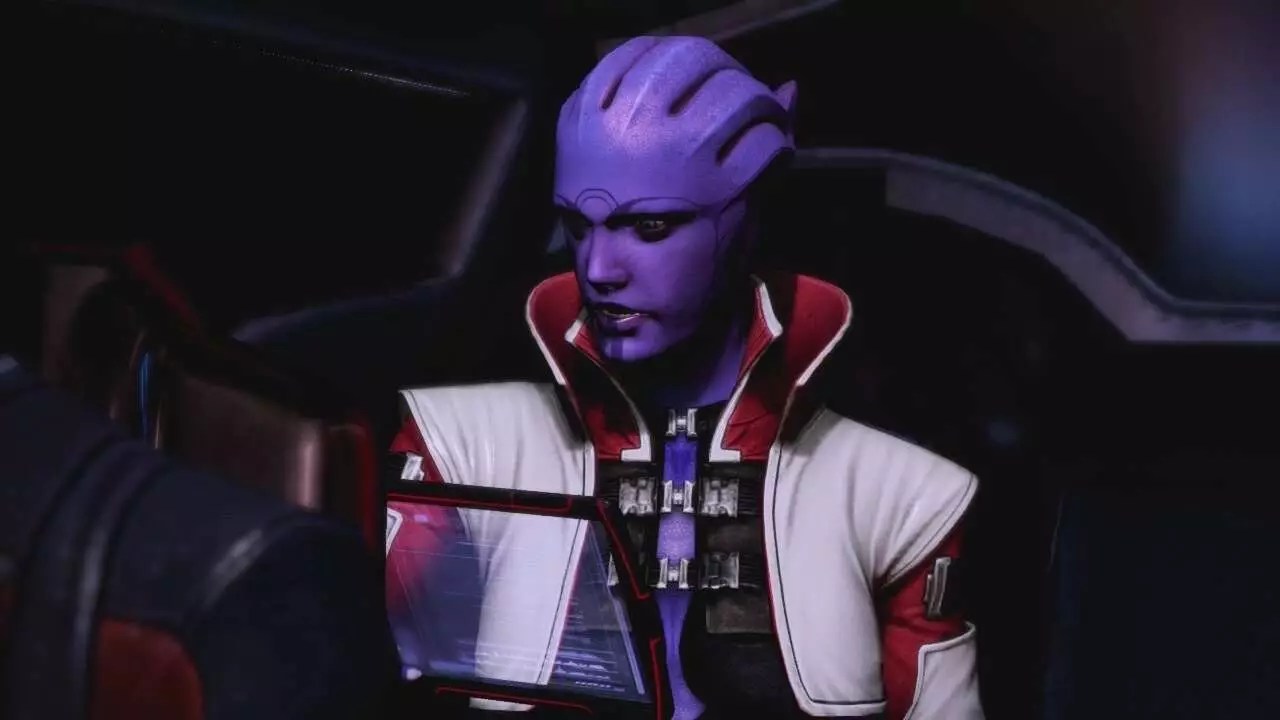The transition of beloved video game franchises to television has become a notable trend in recent years, often sparking fervent discussions among fans. Among the most anticipated adaptations is *Mass Effect*, a game series renowned for its complex storytelling, rich lore, and deeply developed characters. After years of speculation and false starts, it seems the project is finally gaining momentum, especially with the latest developments surrounding Amazon MGM Studios. With Doug Jung stepping on board as the showrunner, this adaptation is poised to spark considerable excitement, raising the hopes of both die-hard fans and newcomers alike.
At its core, *Mass Effect* revolves around Commander Shepard and the myriad decisions that shape a galaxy on the brink of extinction. As the series explores themes of sacrifice, morality, and interspecies diplomacy, it’s imperative that the TV adaptation honors these intricacies. Jung, known for his work on *Mindhunter* and *Star Trek Beyond*, brings a strong background in character-driven narratives, making him a fitting choice for navigating the challenges of translating video game dynamics into a television format.
The Impact of a Showrunner: More Than Just a Title
In the world of television, the role of a showrunner is paramount. They are the creative visionaries steering the ship, maintaining the essence of the narrative while adapting it for a new medium. In this case, Doug Jung’s prior experiences suggest he is well-equipped to handle the multifaceted demands of the *Mass Effect* series. His ability to juggle various responsibilities — from script oversight to production logistics — is crucial, especially given the expansive universe of *Mass Effect*.
The notion that Jung can manage both *Mass Effect* and the upcoming *Chief of War* series simultaneously raises intriguing questions about the feasibility of such multitasking. Still, it’s reasonable to assume that with *Chief of War* set for release soon, Jung will be able to pivot his focus and creative energy towards *Mass Effect*, ensuring a dedicated leadership presence is maintained throughout production.
A Layered Narrative: The Challenge of Adaptation
Creating a television series based on *Mass Effect* presents unique challenges. The game series comprises numerous branching storylines, a plethora of characters, and a deep lore that fans have spent years exploring. It’s paramount that the adaptation captures the essence of these narratives while also being accessible to those unfamiliar with the source material. Showrunner Craig Mazin’s work on HBO’s *The Last of Us* exemplifies a successful approach, showing that thoughtful storytelling can resonate.
Mazin captured the hearts of gamers and newcomers alike by remaining true to the source material yet crafting a narrative that stands on its own. The expectation for Jung is similarly high, particularly given the ambitions expressed by BioWare veteran Mac Walters, who stated that a television series fits the sprawling nature of *Mass Effect* far better than a cinematic release. This sentiment echoes a growing understanding in the industry that certain stories simply demand more time to breathe, necessitating the episodic structure that television provides.
The Creative Team and Their Vision
For a project of this magnitude, having a robust creative team is essential. Among the executive producers, Daniel Casey, known for his involvement in the *Fast & Furious* franchise, and Michael Gamble from BioWare will play pivotal roles in ensuring the show remains authentic to the game’s universe. Meanwhile, veteran producer Ari Arad brings a wealth of experience, having worked on several successful adaptations in the past. The collaboration of these talents will be necessary in shaping a cohesive vision for the series.
Despite speculation and excitement, details surrounding plot elements remain elusive. This mystery adds an air of intrigue to the development process, allowing fans to envision their own interpretations while awaiting official announcements. The absence of a defined narrative roadmap allows the creators the freedom to innovate, potentially exploring new storylines, characters, or settings that could enhance the established lore.
The Promise of Global Engagement
Another factor to consider is the potential cultural impact of the *Mass Effect* series. As gaming continues to gain cultural acceptance, translating these narratives to a broader audience opens doors for new dialogues about identity, responsibility, and the consequences of choices — themes that resonate deeply in our world. The representation of diverse characters in an intergalactic setting can further enrich viewers’ experiences, fostering a sense of connection to both the familiar and unfamiliar.
The collaboration with Amazon suggests significant marketing and distribution power, meaning that *Mass Effect* could potentially reach far beyond existing fans, creating a new audience eager to explore its universe. With the right approach, this adaptation could prove to be a watershed moment that helps to redefine how video game narratives are perceived and executed in television.
The journey from the digital realm of video games to the screen is often fraught with challenges, yet the potential for meaningful storytelling remains strong. With Doug Jung at the helm and a talented team supporting him, the *Mass Effect* series may very well emerge as a landmark accomplishment, ushering in a new era of interactive storytelling on television.


Leave a Reply